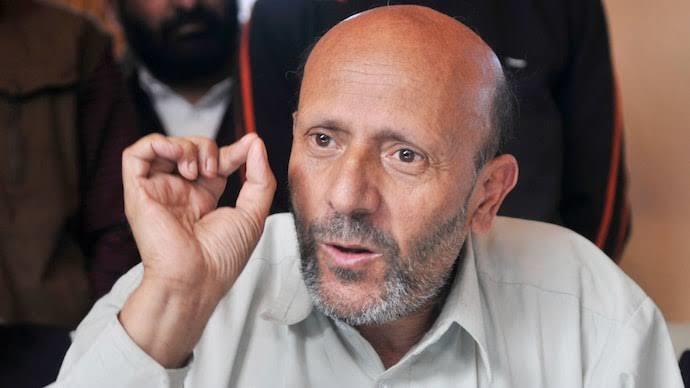New Delhi: The Delhi High Court has issued a notice to the National Investigation Agency (NIA) regarding the regular bail application of Sheikh Abdul Rashid, popularly known as Engineer Rashid, a Member of Parliament from Baramulla.
Rashid is currently detained in Tihar Jail in connection with a terror funding case. He was arrested by the NIA under the Unlawful Activities (Prevention) Act for his alleged role in the 2017 terror funding case. He has challenged the trial court’s March 21 order that rejected his bail plea.
He has also filed a second appeal contesting the charges framed against him. During the hearing, the NIA’s lawyer highlighted a delay of 1,104 days in filing the appeal and argued that, under legal provisions, delays beyond 90 days cannot be excused.
Rashid’s lawyers, Advocates Aditya Wadhwa and Vikhyat Oberoi, argued that the delay is justified and that the 90-day statutory limit should not be strictly applied, especially given the case’s impact on his life and liberty.
The court acknowledged these arguments and issued a notice regarding Rashid’s condonation request, scheduling the next hearing for July 29, 2025.
Rashid was arrested in August 2019 under the UAPA. Despite being in custody, he filed his nomination for the 2024 parliamentary elections from jail and won by a margin of 204,000 votes, defeating former Jammu and Kashmir Chief Minister Omar Abdullah.
In 2022, the NIA Court at Patiala House ordered charges to be framed against Rashid and other prominent figures, including Hafiz Saeed, Syed Salahuddin, Yasin Malik, Shabbir Shah, Masrat Alam, Zahoor Ahmed Watali, Bitta Karate, Aftab Shah, Avtar Shah, Naeem Khan, and Bashir Butt (Peer Saifullah). The charges relate to investigations into terror financing in Jammu and Kashmir.
The NIA alleges that militant groups such as Lashkar-e-Taiba, Hizbul Mujahideen, Jaish-e-Mohammed, and JKLF collaborated with Pakistan’s ISI to carry out attacks targeting civilians and security forces.
The investigation states that the All Party Hurriyat Conference (APHC), formed in 1993 to promote separatist activities, received funds through hawala and other covert channels. The NIA claims that Hafiz Saeed and Hurriyat leaders used these funds to incite unrest—organizing attacks, protests, and acts of violence—including burning schools and damaging public property—aimed at destabilizing Jammu and Kashmir under the pretext of political resistance and fostering terrorism.
